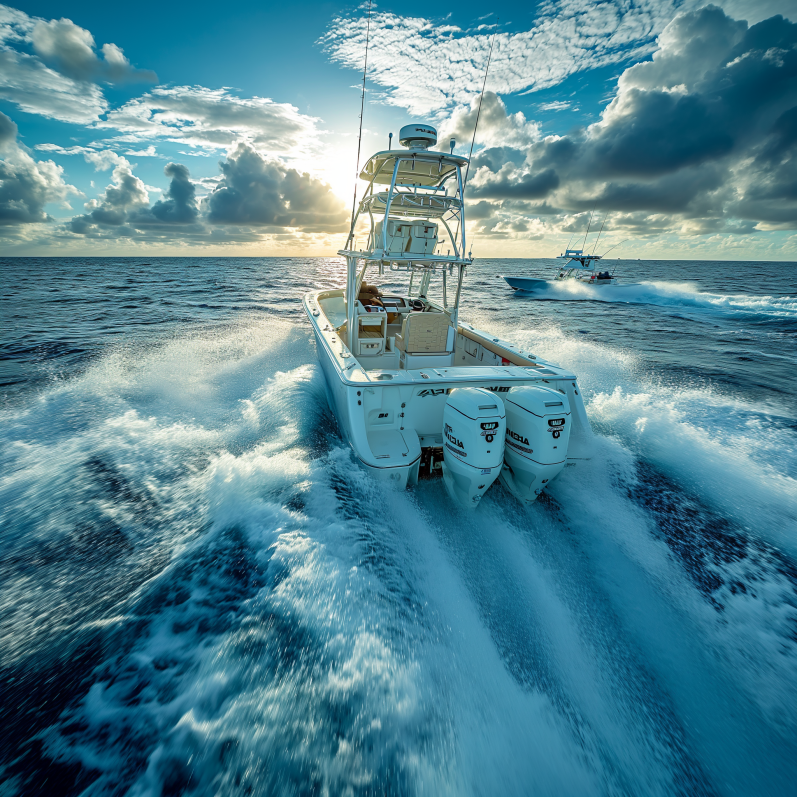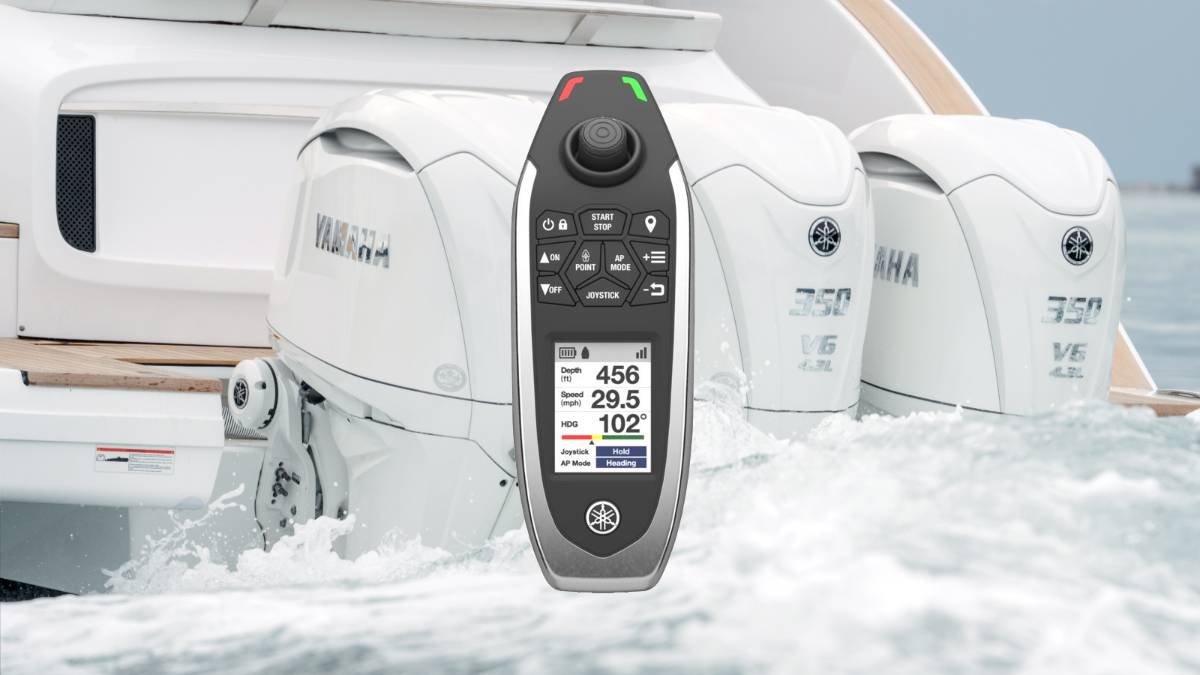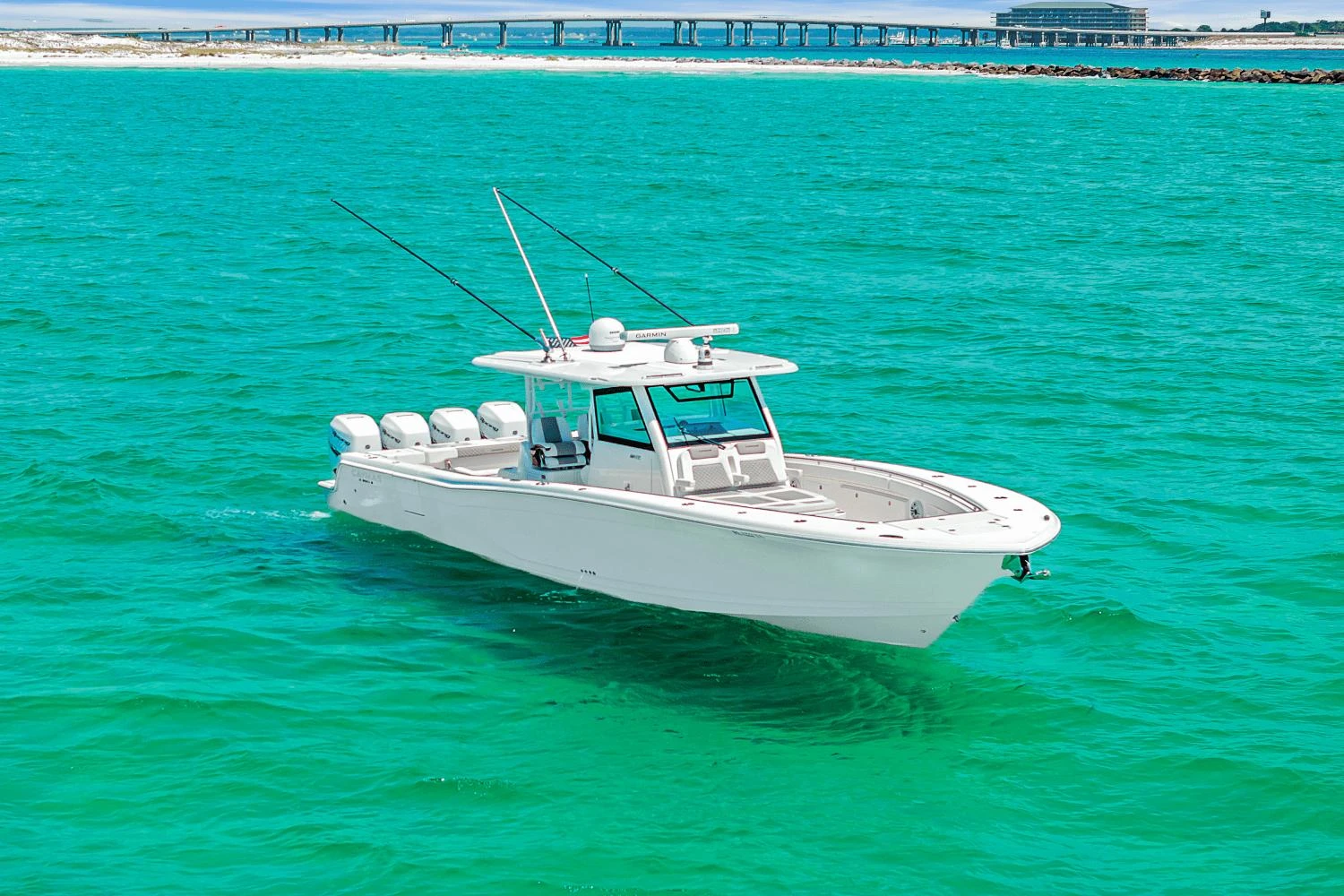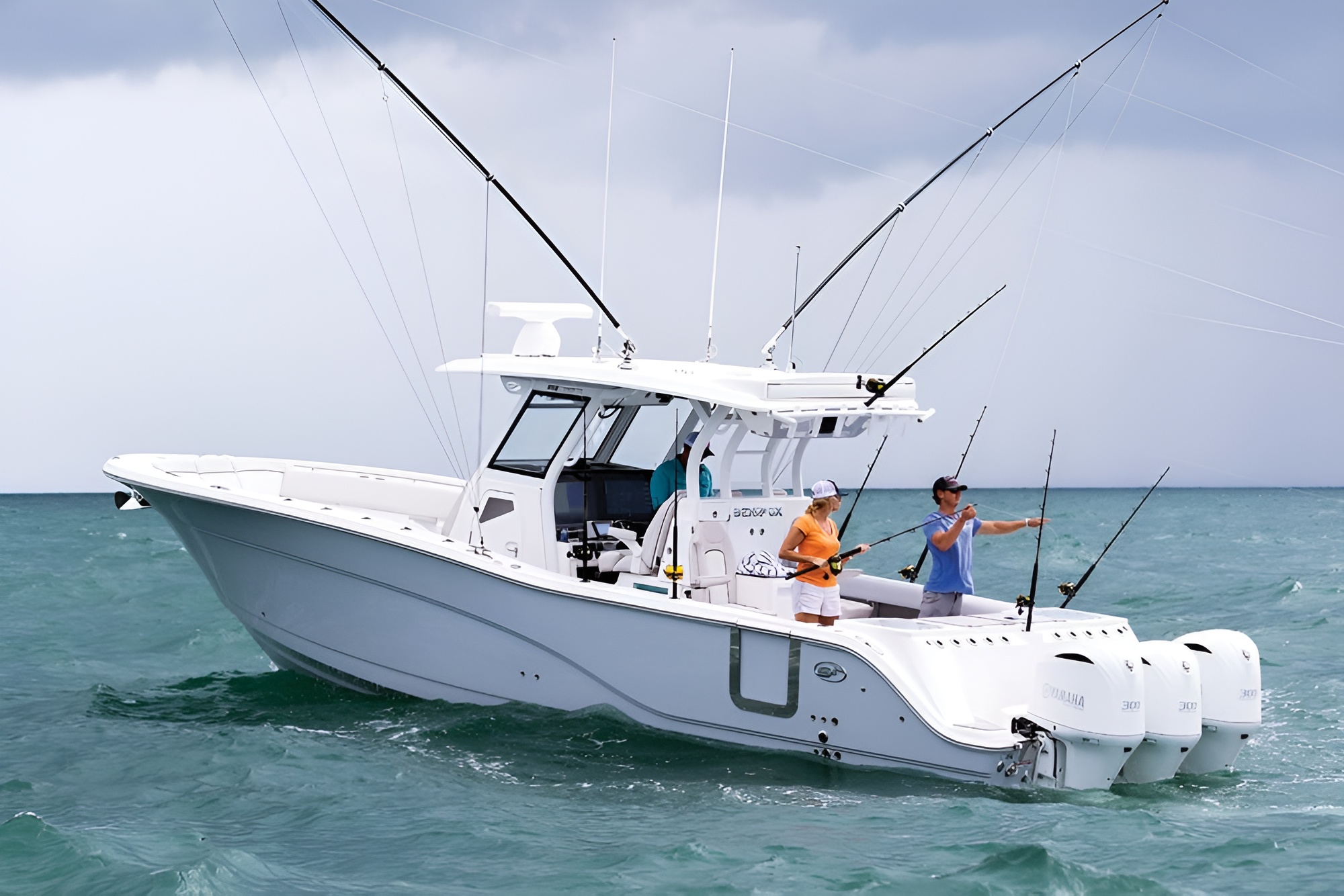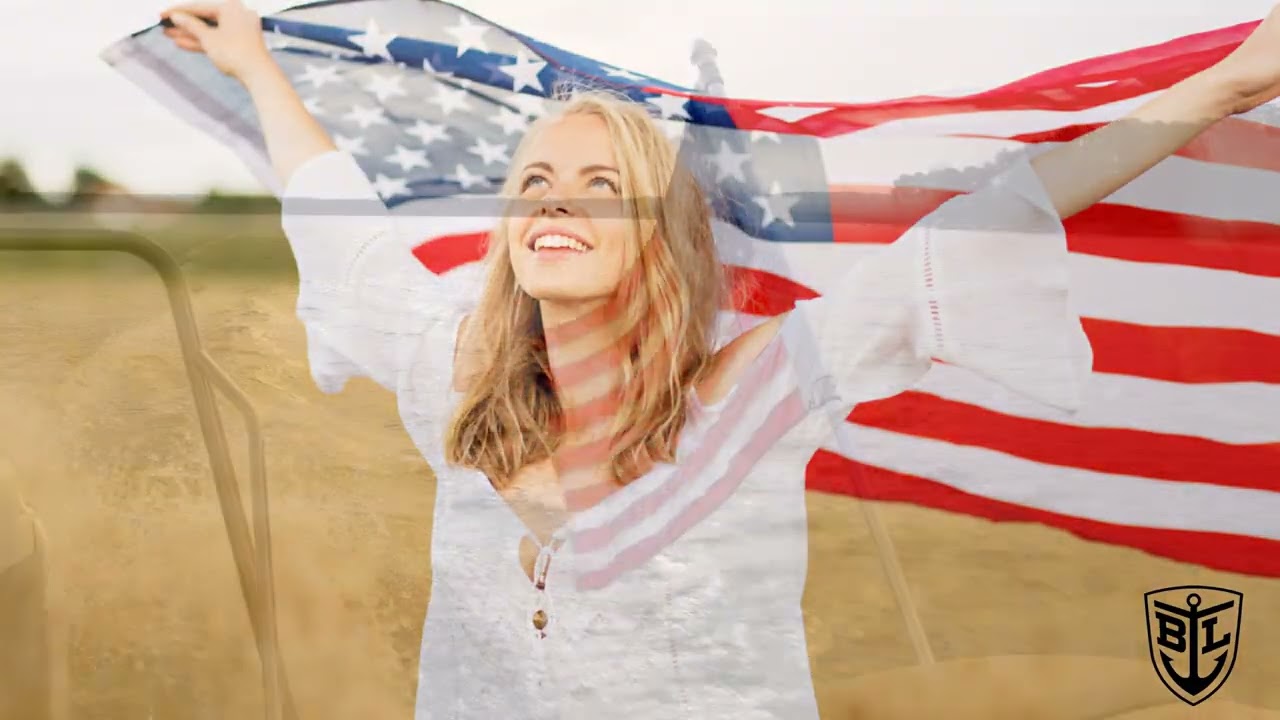Understanding the Importance of Safe Passing
The Fundamentals of Safe Boating Practices
Navigating the waterways requires more than just a love for the open sea; it demands a deep understanding of safe boating practices to ensure the well-being of all who share the aquatic environment. Among the myriad of safety considerations, one that stands out in its importance is the art of passing other vessels, particularly fishing boats, with the utmost care and respect.
Risks of Improper Passing
When two boats converge on the water, the situation can quickly become complex, influenced by factors such as speed, direction, visibility, and the type of vessels involved. The risks associated with improper passing are significant and multifaceted. At the most basic level, an incorrect maneuver can lead to collisions that might cause damage to the vessels and, more critically, injure the passengers aboard.
Environmental and Psychological Impacts
Beyond the immediate physical dangers, improper passing can also lead to the disruption of marine ecosystems, particularly in areas where fishing boats operate, as the wake from larger, faster vessels can disturb fish habitats and the water’s ecological balance. Moreover, the psychological impact on boaters cannot be understated. Encounters that feel too close for comfort can lead to heightened anxiety and reduced enjoyment of the boating experience.
The Importance of Adhering to Maritime Rules
The cornerstone of safe passing lies in understanding and adhering to established maritime rules and conventions designed to prevent mishaps at sea. These rules, often likened to the rules of the road for waterways, provide a framework for predictable and orderly movement, ensuring that all boaters can anticipate the actions of others and react accordingly.
The Shared Responsibility of Boaters
In essence, the importance of safe passing boils down to a shared responsibility among all boaters to preserve the safety, enjoyment, and environmental sanctity of our waterways. By committing to these principles, boaters not only protect themselves and others but also contribute to a culture of respect and stewardship that defines the best of the boating community.
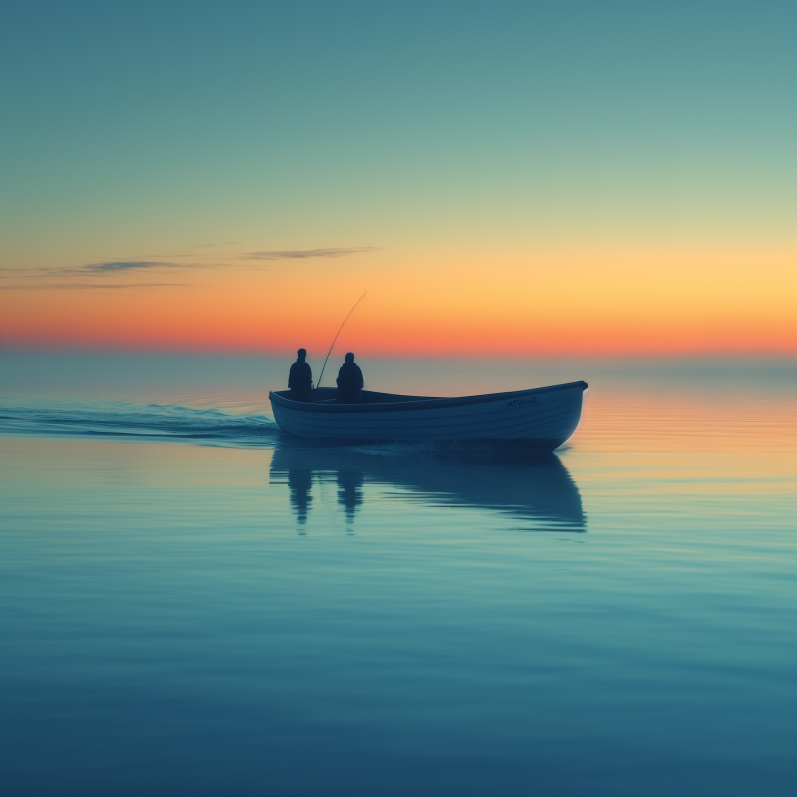
Rules of Navigation for Passing Boats
Understanding Maritime Right-of-Way
In the realm of boating, the “right-of-way” is a fundamental concept that governs how vessels should interact on the water to prevent collisions. Similar to vehicular traffic on roads, maritime rules outline clear guidelines for vessels approaching each other from different directions.
The Stand-On vs. Give-Way Vessels
- The Stand-On Vessel: This is the boat that has the right-of-way under specific circumstances. It is expected to maintain its course and speed, allowing the other vessel to maneuver around it safely. The stand-on vessel should only make course or speed adjustments if it becomes apparent that the give-way vessel is not taking appropriate action to avoid a collision.
- The Give-Way Vessel: This boat is required to take early and substantial action to steer clear of the stand-on vessel, ensuring a safe passage. The actions of the give-way vessel should be predictable and decisive, so as to not confuse the stand-on vessel about its intentions.
Specific Scenarios and Rules
- Head-On Approach: When two power-driven vessels are approaching head-on, both should alter their course to starboard (right) to pass on the port (left) side of the other.
- Crossing Situation: When two boats cross paths, the vessel to the other’s starboard (right) side is the stand-on vessel and should maintain its course and speed. The vessel on the port (left) side is the give-way vessel and must take action to avoid crossing in front of the stand-on vessel.
- Overtaking: Any vessel coming up from behind another must give way, regardless of which side it chooses to pass on. The overtaking vessel is responsible for ensuring the pass is completed without causing the vessel being overtaken to alter its course.
Special Considerations for Fishing Boats
Fishing boats, especially when actively fishing, can have restricted maneuverability and may not be able to give way as readily as other vessels. In such cases, they are often considered stand-on vessels, and it’s crucial for other boaters to navigate around them with extra caution and patience.
Importance of Clear Communication
In situations where the intentions are not clear or where the rules might not apply directly, effective communication between vessels is key. This can be through standardized signals, such as horn blasts, or through visible actions that clearly indicate the intended course of action.
Understanding and applying these navigational rules is not just about legal compliance; it’s about fostering a safe and cooperative environment on the water. By respecting these guidelines, boaters contribute to the safety and enjoyment of all waterway users, ensuring a harmonious boating experience.
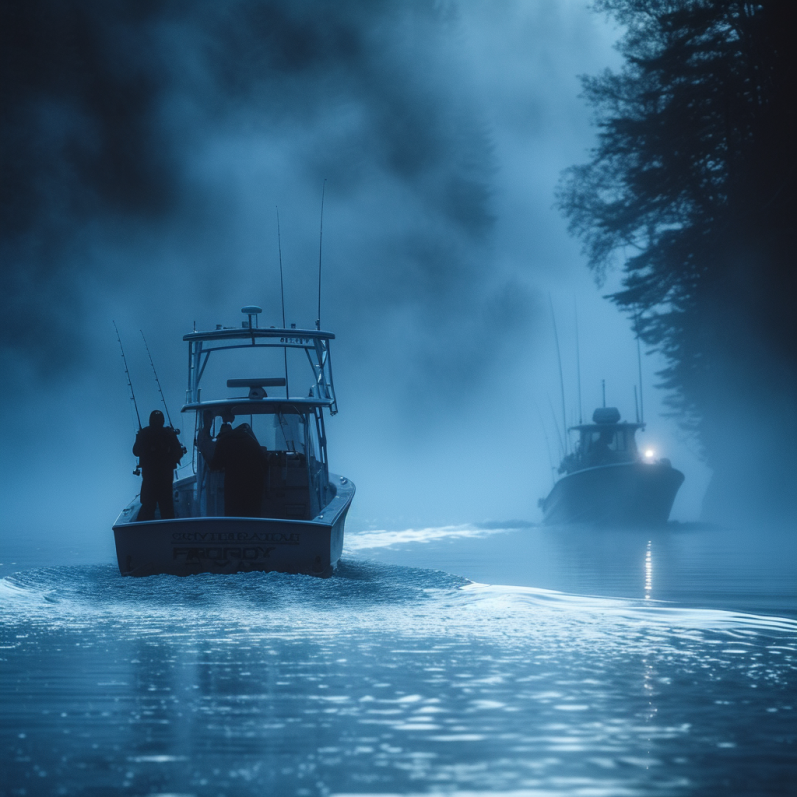
Why Should Boaters Slow Down While Passing Recreational Fishing Boats?
Safety First: Minimizing Risk
Slowing down when passing recreational fishing boats isn’t just courteous; it’s a critical safety measure. The primary reason is the reduction of risk. Fishing boats are often stationary or moving slowly, with occupants focused on fishing rather than oncoming traffic. A high-speed pass can create a sudden and dangerous situation, leaving little time for reaction.
The Impact of Wake and Waves
- Wake-Induced Instability: The wake from a fast-moving boat can cause significant rocking and instability for stationary or slow-moving fishing boats. This can lead to accidents, including man-overboard situations or collisions with objects or other boats.
- Disruption of Fishing Activities: Besides the safety concerns, the wake can also disrupt fishing lines, displace bait, and scare away fish, directly impacting the fishing experience.
Preserving the Fishing Environment
A slow pass is not only about immediate safety but also about preserving the aquatic environment that recreational fishing depends on. High-speed passes near the shore or in shallow waters can cause erosion, disturb habitats, and negatively impact the marine ecosystem.
Encouraging Mutual Respect Among Boaters
Slowing down signifies respect and consideration for fellow boaters, fostering a positive and cooperative atmosphere on the water. This mutual respect ensures that all boaters, regardless of their activity, can enjoy their time on the water without undue interference or risk.
Legal and Ethical Considerations
In many areas, specific regulations govern how boats should pass each other, especially in narrow channels or near the coast. Abiding by these rules is not only a legal requirement but an ethical one, underscoring the boater’s responsibility towards others and the environment.
By understanding and practicing these considerations, boaters contribute to a safer, more enjoyable boating community. It’s about sharing the waterways responsibly, ensuring that everyone, from the avid angler to the recreational boater, can appreciate the beauty and thrill of boating without compromise.
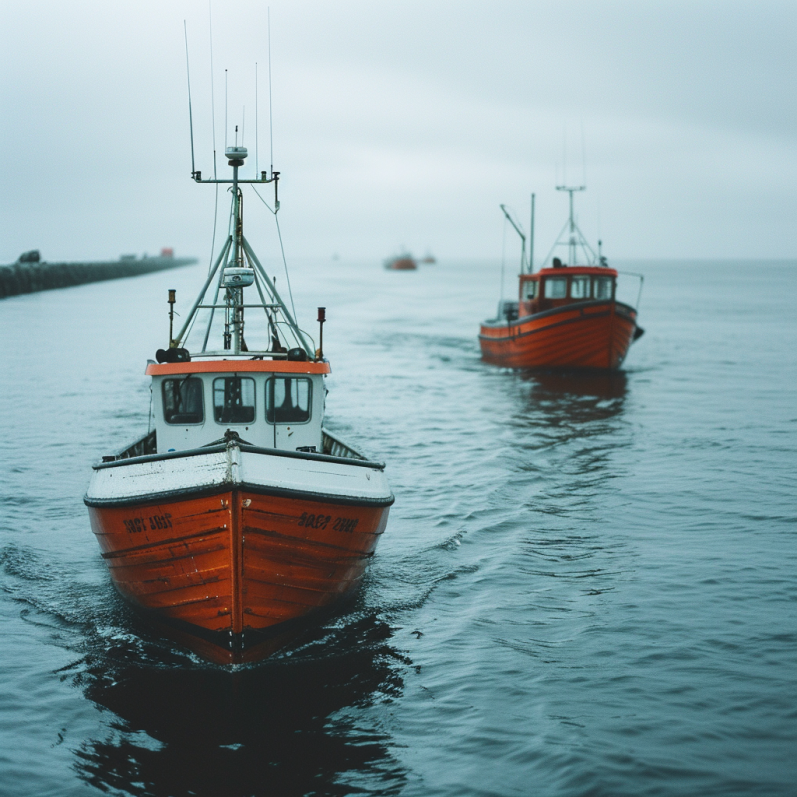
Practical Tips for Safely Passing Fishing Boats
Assessing the Situation
Before attempting to pass a fishing boat, it’s crucial to assess the situation carefully. Consider the speed, direction, and activity of the fishing boat, as well as environmental factors like wind, current, and traffic density. This assessment will help you choose the safest and most considerate approach.
Reducing Speed
- Gradual Deceleration: Begin by gradually reducing your speed as you approach the fishing boat. A sudden decrease in speed can be as disruptive as a fast pass, especially in busy waterways.
- Maintain Control: Even at reduced speeds, maintain full control of your vessel, ensuring you can make adjustments as needed based on the fishing boat’s actions or changes in the environment.
Wide Berth
- Increase Distance: When passing, give the fishing boat as much space as possible. A wide berth minimizes the impact of your wake and reduces the risk of collision or interference with fishing activities.
- Pass on the Side: Determine the most appropriate side to pass based on the direction of both vessels and any obstacles in the water. Whenever possible, aim to pass on the side that offers the most space and least disruption.
Communication is Key
- Signaling Intentions: If close enough to communicate, consider signaling your intention to pass. This can be through marine VHF radio, hand signals, or agreed-upon signals like horn blasts, depending on the distance and noise level.
- Observing Responses: Watch for any signals or movements from the fishing boat that might indicate their intentions or concerns about your approach.
After Passing
- Resume Speed Gradually: Once you’ve passed and are at a safe distance, gradually increase your speed back to your cruising pace. Sudden accelerations can still create disruptive wakes for the fishing boat.
- Keep Monitoring: Continue to monitor the situation to ensure that the fishing boat wasn’t adversely affected by your pass. Adjust your future passing practices based on any observations or interactions.
By following these practical tips, boaters can ensure that their passing maneuvers are safe, respectful, and minimally disruptive to fishing activities. These practices not only contribute to the safety and enjoyment of all waterway users but also foster a culture of courtesy and mutual respect among the boating community.
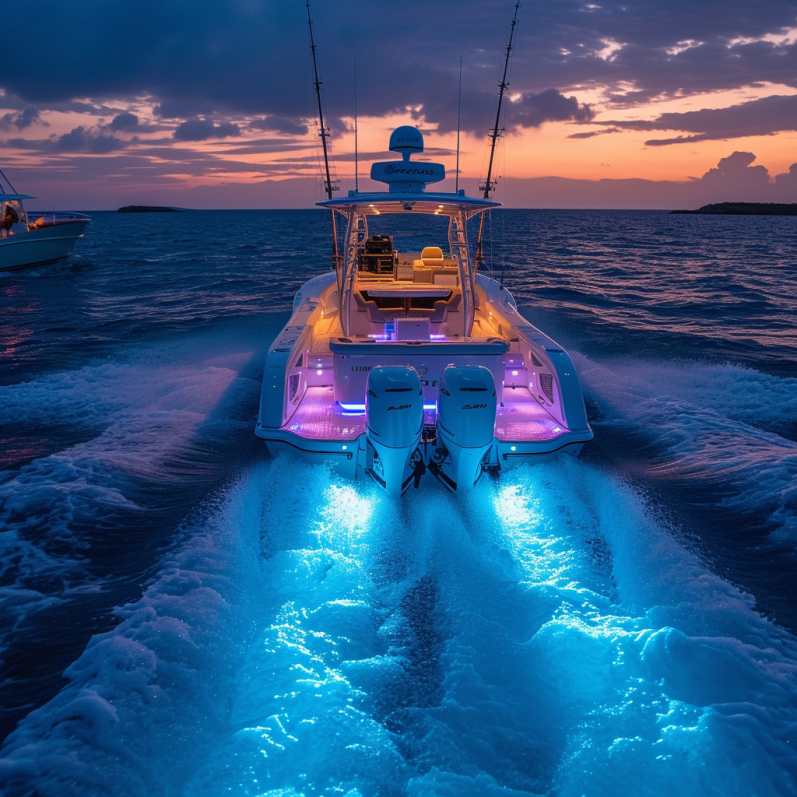
Choosing the Right Boat for Recreational Fishing
Key Features for Fishing Boats
When selecting a boat for recreational fishing, certain features can enhance your experience and ensure both enjoyable fishing and safe boating practices. Stability, ample deck space, and easy access to fishing gear are essentials. Additionally, consider boats with versatile seating arrangements, live bait wells, rod holders, and built-in tackle storage for convenience and efficiency.
The Importance of a Smooth Ride
- Hull Design: A boat with a hull designed for smooth navigation through various water conditions can make a significant difference, especially when passing other vessels or navigating choppy waters.
- Engine Performance: Reliable and efficient engine performance is crucial, not just for speed, but for maneuverability in tight spots and during slow cruising while fishing.
Safety Features
Safety should always be a top priority. Look for boats equipped with essential safety features like navigation lights, a sound-producing device, and an easily accessible fire extinguisher. A boat’s design should also facilitate easy movement around the deck to prevent accidents, especially in rough waters.
Black Label Marine Group: Your Destination for Fishing Boats
At Black Label Marine Group, we understand the unique needs of anglers and boating enthusiasts. Our extensive inventory includes a range of boats that cater to both novice and experienced fishermen. Whether you’re looking for the agility and speed to reach your favorite fishing spot quickly or the stability and comfort for long days on the water, our team can help you find the perfect match.
Why Choose Black Label Marine Group?
- Expert Guidance: Our knowledgeable staff can guide you through our selection, ensuring you find a boat that not only meets your fishing needs but also aligns with safe boating practices for passing and navigating busy waterways.
- Quality and Service: With a commitment to quality and customer service, Black Label Marine Group offers boats from reputable manufacturers, ensuring reliability and satisfaction. Plus, our service shops at each location are equipped to maintain and service your boat, keeping it in peak condition.
Choosing the right boat enhances your fishing adventures and ensures you can navigate and pass safely on the water. Let Black Label Marine Group help you make an informed decision, ensuring countless memorable experiences on the water. Visit our website or stop by one of our locations in Punta Gorda, Ocala, or Pinellas Park, Florida, to explore our inventory and find your perfect fishing companion.

